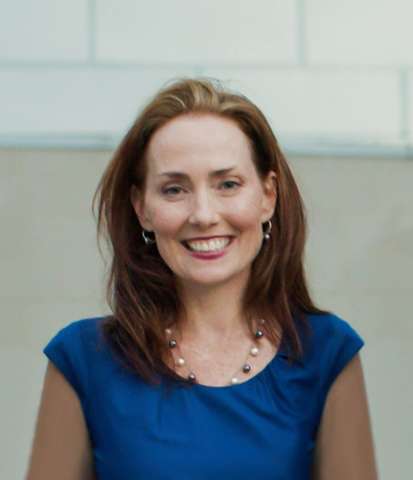
Helping Improve Teens' Mental Health: A Q&A with Associate Professor Holly Wilcox
September 21, 2020
In the September 11 edition of the American Health Dispatch, we wrote about the increase in symptoms of anxiety and depression among young people between March, when coronavirus lockdowns began in the U.S., and June. Associate Professor Holly Wilcox has dedicated her career to studying suicide prevention interventions for young people. In 2018, she started working with the National Council for Behavioral Health to adapt an Australian program called teen Mental Health First Aid for use in the United States. This innovative peer-to-peer program equips young people with the tools to identify and respond to signs of mental health or substance use issues in their peers.
tMHFA launched in Australia in 2007. Dr. Wilcox—along with Associate Scientist Elise Pas and Assistant Professor Sarah Murray—helped develop the U.S. version, which is funded by Born This Way Foundation, led by Lady Gaga and her mother, Cynthia Germanotta. The program is now being implemented in high schools across the country, with middle schools to come. The researchers are also providing evaluation of the U.S. iteration of the program.
During National Suicide Prevention Month, we talked with Dr. Wilcox about this innovative program—and what it’s like to partner with Lady Gaga on this important issue.
Can you share an overview of how the teen Mental Health First Aid program works?
teen Mental Health First Aid is a highly practical, interactive, school-based curriculum that, in 3 to 4 sessions, teaches tenth- to twelfth-grade high school students how to identify a peer with mental health and substance use problems or crises, and how to help that peer connect with a responsible adult who can help them to get the care they need. The program includes role play, videos, visuals, and artwork.
Why is such a program so important? How is it different from other programs in this area?
tMHFA is delivered universally to all students in a natural setting (school), which can lessen stigma and provide all students with a baseline skillset to know how to handle potentially life-threatening situations.
Most other programs like this focus on training the adults working with students to identify those in crisis, rather than directing training to students. Research shows that most young people first seek out a friend when they are struggling. Even after training, the majority of adults working in K–12 schools (who are not mental health professionals) are not comfortable intervening with students at risk. School personnel find tMHFA easy to teach and highly relevant and impactful on their students.
This program has been rigorously tested in Australia. We are currently evaluating this program in 90 schools or community settings in 33 U.S. states, with approximately 24,000 students and 200 trained instructors. The tMHFA content aligns with state health education policies and standards.
Why did you start with high school-age students? How will you adapt it to middle school age students—and why do you need to?
The high school program has been fully tested in Australia and was ready for adaptation, implementation, and testing in the United States. The middle school program is still being tested in Australia. We have been seeing increases nationally and locally in depression, anxiety, and suicidal behaviors in prepubertal children, so the middle school program, in my opinion, is essential.
How are you measuring success?
We are conducting pre-, post-, and follow-up assessments of students to assess how much students learned and whether the program changes their baseline knowledge and behaviors. We are also conducting surveys of instructors to assess whether the program was easy to teach, whether students were engaged, and whether students approached them after the course to discuss concerns about themselves or others, or to help link them with school mental health professionals for a referral.
How has COVID-19 complicated implementation?
We started implementing a randomized trial in the 2019–2020 school year. About half of the schools were not able to implement or complete the program before COVID school building closures, and post-test data collection for those that implemented was also impacted.
What has your collaboration with Born This Way Foundation been like?
We are starstruck with Lady Gaga and Cynthia! They would like all schools in the United States to offer this program, and we are working towards determining whether there is scientific evidence that it works and to inform how it may be further refined. Born This Way Foundation has the reach and influence to help so many people, and we are so grateful for their partnership and the elevated platform they are able to give this promising program.
Connect With Us
Receive all the latest news from the Initiative by signing up for the American Health Dispatch newsletter, subscribing to the American Health Podcast, and subscribing to our YouTube channel.
Contact Us